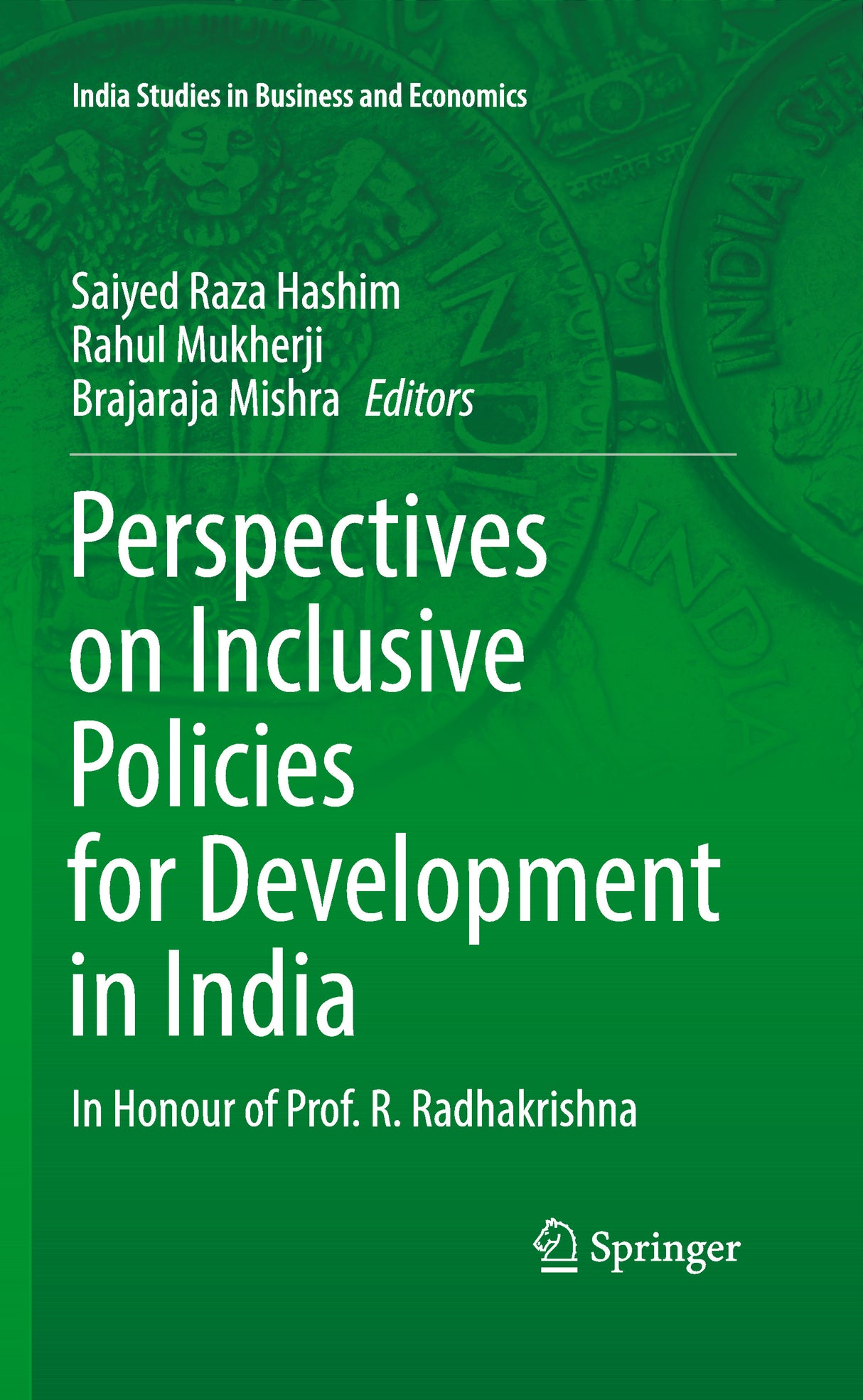PERSPECTIVES ON INCLUSIVE POLICIES FOR DEVELOPMENT IN INDIA: In Honour of Prof. R. Radhakrishna
PERSPECTIVES ON INCLUSIVE POLICIES FOR DEVELOPMENT IN INDIA: In Honour of Prof. R. Radhakrishna is backordered and will ship as soon as it is back in stock.
Couldn't load pickup availability
Genuine Products Guarantee
Genuine Products Guarantee
We guarantee 100% genuine products, and if proven otherwise, we will compensate you with 10 times the product's cost.
Delivery and Shipping
Delivery and Shipping
Products are generally ready for dispatch within 1 day and typically reach you in 3 to 5 days.
Book Details
-
Author: S. R. Hashim (Editor), Rahul Mukherji (Editor), Brajaraja Mishra (Editor)
-
Publisher: Springer
-
Language: English
-
Binding: Hardcover
-
Number of Pages: 478
-
Release Date: 2024
-
ISBN: 9789819974801
About the Book
This book brings together the perspectives of eminent economists, social scientists, and policymakers, offering an in-depth exploration of post-reform developments in India, focusing on critical issues of growth, equity, and public policy. At the heart of this work lies the lifetime contributions of Prof. R. Radhakrishna, whose work sheds light on how certain public policy instruments designed to promote growth have turned out to be regressive, perpetuating inequalities and contributing to the rise of highly asymmetric federalism in India.
Through a careful examination of fiscal and monetary reforms, the book emphasizes the necessity for strengthening institutions of governance, especially the judiciary and police, to boost investors' confidence. It also presents detailed exercises in econometric modeling to analyze the factors driving growth and evaluate policies, providing insight into the intricacies of governance and institutions.
Furthermore, the book offers valuable insights into the working of an emerging economy like India, stressing the importance of public acceptability in navigating the tensions between equity and growth. With its academic rigor and wide-ranging topics, this book is an essential read for researchers, policymakers, industry analysts, think tanks, and NGOs, as it navigates the complexities of development and governance in contemporary India.





